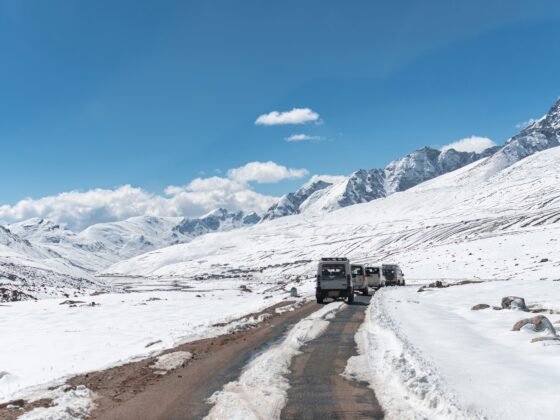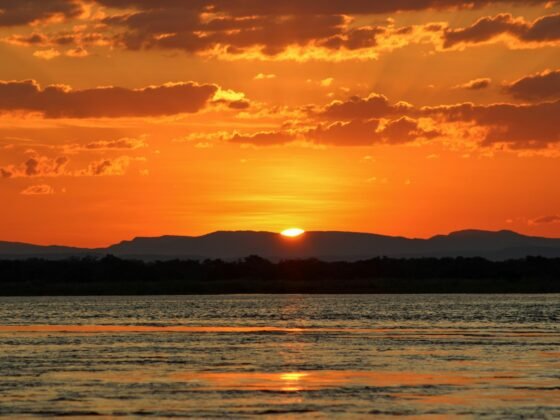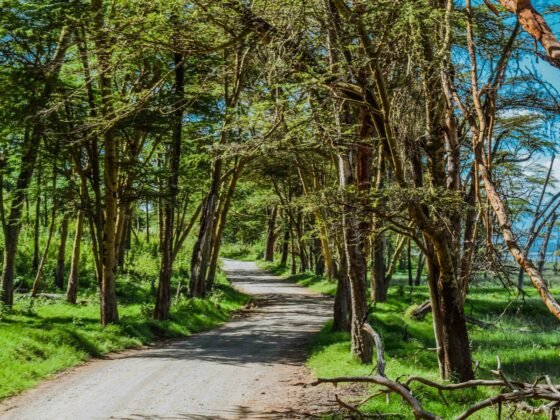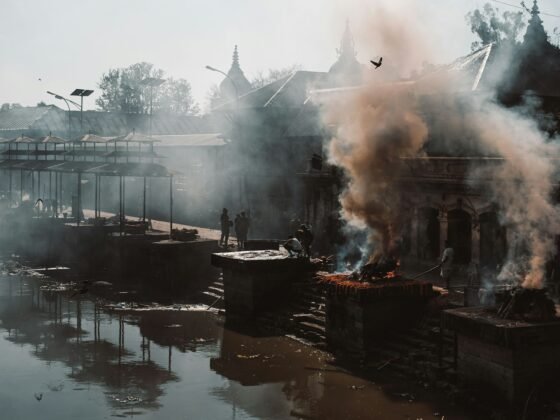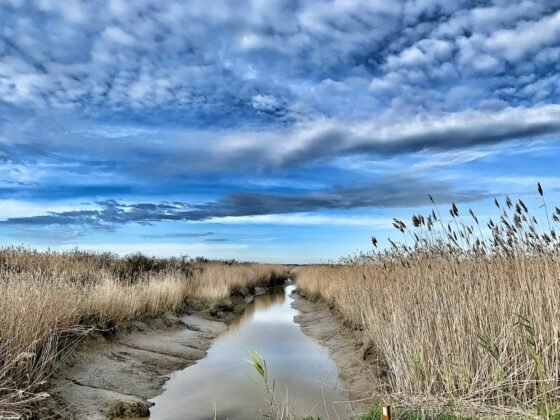Robert Ferguson spend a summer traveling in the Hindu Kush in the late 1990’s, camping in poppy fields, experiencing the wonderful hositality of its inhabitants and entranced by its rugged beauty.
It’s 5 a.m., and the cold mountain air cuts through my layers like a knife. I’m standing on the roof of the world, or at least it feels that way. The Hindu Kush mountain range, an unforgiving and majestic stretch of peaks and valleys, sprawls out before me, a labyrinth of rock and snow that has defined the geography, culture, and history of this region for millennia. My breath hangs in the thin air as I look out over this ancient landscape, realizing that, unlike most places I visit, this is a place where time has stood still, and the modern world feels a million miles away.
The Hindu Kush is not the kind of place that greets you warmly. It doesn’t need to. It’s a region that demands respect from the moment you set eyes on it, with its towering peaks, jagged ridges, and remote valleys that seem to whisper stories of forgotten empires and lost civilizations. There’s an austere beauty to this place, a kind of stark elegance that leaves you both humbled and awestruck.
My journey began in Kabul, Afghanistan’s bustling capital, where the chaos of the city felt like a world apart from the serene wilderness I was about to enter. From Kabul, it was a bumpy and somewhat nerve-wracking drive up into the mountains. The roads, if you can call them that, are little more than dirt tracks carved into the mountainside, winding precariously close to the edge. It’s the kind of drive where you’re acutely aware of your own mortality.
As we ascended, the landscape began to change. The bustling markets and crowded streets gave way to barren slopes and vast, open spaces. The air became thinner, the sky bluer, and the temperature dropped with every mile. By the time we reached our destination, a small village nestled in a valley high in the mountains, it felt as if we had entered another world—a world where nature reigns supreme, and humans are merely temporary guests.
The Hindu Kush is home to some of the most isolated and resilient communities in the world. These are people who live in harmony with the harsh environment, adapting their lives to the rhythms of the mountains. The village where I stayed was a small, tight-knit community, with stone houses clinging to the mountainside, connected by narrow paths that zigzag up and down the slopes.
My hosts were a family of five, and despite the language barrier, we quickly bonded over shared meals and the universal language of smiles and gestures. The father, a weathered man in his late fifties, was a farmer, growing what little the rocky soil would allow—mainly barley and wheat. The mother, a strong, silent woman, was the backbone of the household, tending to the livestock and keeping the home running smoothly.
One of the most striking things about life in the Hindu Kush is the simplicity. There’s no electricity in most of these villages, no running water, and certainly no internet. Life here is stripped down to its essentials—food, shelter, and community. Yet, despite the hardships, there’s a sense of contentment that I found deeply moving. These are people who have learned to find joy in the small things, who have built a way of life that, while challenging, is also rich in tradition and meaning.
Religion plays a central role in the lives of the people here, with Islam being the dominant faith. However, the form of Islam practiced in the Hindu Kush is often a syncretic blend of traditional beliefs and practices, shaped by centuries of isolation and cultural exchange along the ancient trade routes that crisscross the region.
I was invited to attend a Friday prayer service at the local mosque, a small, unassuming building that looked more like a farmhouse than a place of worship. The interior was simple, with a dirt floor and a few rugs laid out for prayer. As the imam led the congregation in prayer, I was struck by the quiet devotion of the people around me. There was a palpable sense of peace in the room, a feeling that despite the isolation and hardship, there was a deep spiritual connection that bound these people together.
The local culture is also steeped in ancient traditions, many of which predate the arrival of Islam. In the evenings, the village elders would gather around a fire, telling stories of the old days—tales of legendary warriors, mythical creatures, and the spirits that are said to inhabit the mountains. It was in these moments that I felt the true spirit of the Hindu Kush—a place where the past is always present, where history and myth blend seamlessly together.
No journey to the Hindu Kush would be complete without venturing into the mountains themselves. The terrain here is some of the most challenging in the world, with steep, narrow paths that wind their way through the mountains, crossing icy rivers and precarious ledges. But for those willing to take on the challenge, the rewards are immense.
My guide was a young man from the village, who had spent his entire life navigating these mountains. He led me on a trek to one of the highest passes in the region, a journey that took us through some of the most breathtaking landscapes I have ever seen. The path was difficult, often requiring us to scramble over rocks and wade through streams, but the views were worth every drop of sweat.
At the top of the pass, we were greeted by a panoramic view that took my breath away. Below us, the valley stretched out like a green ribbon, dotted with small villages and terraced fields. Above us, the snow-capped peaks of the Hindu Kush soared into the sky, their jagged edges sharp against the blue. It was a moment of pure awe, a reminder of the incredible beauty and power of nature.
But the mountains are not without their dangers. The Hindu Kush is known for its avalanches, rockslides, and sudden changes in weather. As we descended from the pass, a sudden storm rolled in, bringing with it a blinding snow and howling winds. We were forced to take shelter in a small cave, huddling together for warmth as the storm raged outside. It was a stark reminder that in the Hindu Kush, nature is both a friend and a formidable foe.
The Yarkhun Valley, in Pakistan’s Chitral District, was another highlight of my journey through the Hindu Kush. This remote valley is a place of extraordinary beauty, where the mountains rise steeply from the valley floor, their snow-covered peaks reflected in the clear waters of the Yarkhun River. The people of Yarkhun are known for their hospitality, and despite the isolation, there is a vibrant community life here. The valley is dotted with small villages, where traditional wooden houses are surrounded by fields of wheat and barley. The air is filled with the sound of rushing water, birdsong, and the distant bells of grazing yaks. It’s a place that feels untouched by time, where the rhythms of life are dictated by the seasons and the mountains themselves.
The Hindu Kush has long been a crossroads of empires, a place where East meets West, and where conflict is never far away. The region has seen countless invasions, from Alexander the Great to the British Empire, and more recently, the Soviet invasion of Afghanistan. Today, the Hindu Kush remains a volatile region, with the ongoing conflict in Afghanistan casting a long shadow over the mountains.
The people here have learned to live with the constant threat of violence, adapting their lives to the ever-present danger. During my stay, I heard stories of villages caught in the crossfire, of families displaced by war, and of the deep scars that decades of conflict have left on the land and its people. Yet, despite the hardships, there is a remarkable resilience among the people of the Hindu Kush—a determination to survive, to hold on to their way of life, no matter what.
As my time in the Hindu Kush came to an end, I found myself reflecting on the profound impact this place had on me. The mountains had challenged me, humbled me, and left me with a deep respect for the people who call this place home. The Hindu Kush is not an easy place to live, nor is it an easy place to visit. But it is a place of incredible beauty, both in its landscapes and in its people.
As I made my way back down the mountains, leaving behind the snow-capped peaks and rugged valleys, I felt a sense of loss. The Hindu Kush is a place that stays with you long after you’ve left, a place that reminds you of the power of nature, the resilience of the human spirit, and the enduring importance of tradition and community in a world that is constantly changing.
In the end, the Hindu Kush is not just a place on a map—it’s an experience, a journey into the heart of one of the most remote and rugged regions on earth. And for those who are willing to venture into its wild embrace, it is a journey that will leave you forever changed.
Photo by Shahzad Ali on Unsplash




